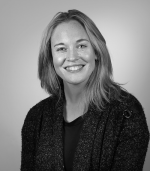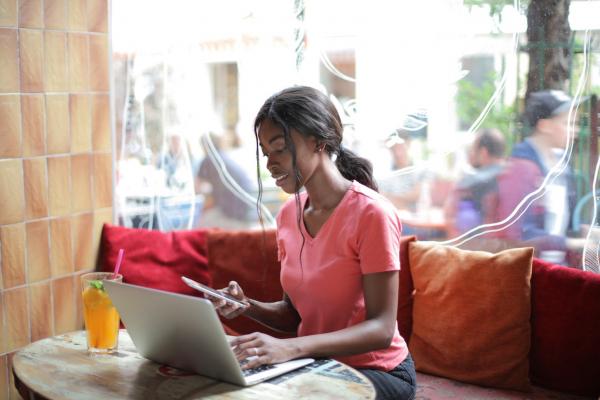“I never saw a discontented tree.
They grip the ground as though they liked it. . .”
These words from philosopher John Muir always cause me pause and reflect. A testament to their power, trees are unable to move and remain rooted in one place for a lifetime.
"When we try to pick out anything by itself,
we find it hitched to everything else in the Universe."
In the natural world everything is connected. Nothing can be treated in isolation. Is this also true for people? Are we all connected by default, but create distance between one another?
Currently, I'm working in Coober Pedy, a remote outback town 850km north of Adelaide. Here, amidst the inhospitable desert terrain, a strong community spirit thrives. Aboriginal people have lived here for thousands of years and it's a significant site to the Antakirinja Matuntjara Yankunytjatjara people.
Before white settlement the name of the area was "Umoona," derived from the Umoona tree, meaning "long life." The presence of this tree perhaps hints at the foundation of a deeply rooted sense of community, which I got a taste of while running in the Great Kanku-Breakaways Marathon.
How did I end up running a desert marathon?
The Breakaways are impressive features of a dissected and eroded tableland of the Stuart Range, which have featured in films such as Mad Max and Priscilla Queen of the Desert. I felt a deep affinity with the Breakaways (which is truly bizarre, seeing as I grew up in Ireland). The lush green environment contrasts starkly with the hostile desert terrain.
When I learned of the The Great Kanku-Breakaways Marathon I knew I had to run it.
When D-Day had arrived (by which I mean Desert-Day), my objective was to finish the event and run happy.
It was the most unique run I have entered. Participants were collected in oversized heavy duty buses. As we clambered on, I felt like we were going to war. Perhaps we were. We whizzed past an endless series of multicoloured mounds that littered the side of the Stuart Highway, a trademark sign of opal mining.
Running through the desert was a surreal experience. The multi-coloured landscape shimmered against the backdrop of a brilliant blue sky. I felt grateful to venture by foot where few humans have. Part of the route followed "the dog fence." (Yes, in Coober Pedy a dog fence is indeed a tourist attraction. In 1946, the longest fence in the world was erected to protect livestock from dingoes. Initially 9,600km, it now extends 5,300km along the edge of the Breakaways as far north as Dalby in Queensland.)
There was also the heat to contend with. Hailing from the emerald isle, I have not acclimatized to the intense Australian heat. (Note that if Australians tell you "it’s not that hot," pay no heed. I truly believe that their heat receptors have been burnt off. They have no concept of "hot." Furthermore, they do not possess delicate Irish skin that needs to be constantly slathered in sunscreen to protect against that burning ball in the sky.)
Note that if Australians tell you "it’s not that hot," pay no heed. They do not possess skin that needs to be constantly slathered in sunscreen.
The dirt track seemed to stretch on endlessly over the horizon, evoking my inner demons. My legs hurt and every fibre of my being yelled "stop!"
Luckily, at each of the aid stations, I was able to replenish my water, sugar, and morale stores. Kind words were administered when needed the most. I spluttered profuse thank you's as I set off for the next aid station. The words from volunteers, spectators and fellow participants were more meaningful than they know. They seemed in genuine awe of what I was doing.
I exceeded my goal and won! I was also ecstatic that the kindness I was shown enabled me to run happy for 26.2 miles and cross finish line with a smile on my face. The event further cemented my admiration for hard work of the organizers and the community.
How does the sense of community compare with that of a larger city?
Accustomed to city life I was surprised by the friendliness that shapes daily interaction here. While travelling I have felt the most isolated in larger towns or cities. Although cities are not devoid of warmth and friendliness, it must be hard-won. You must seek it out.
Here, people greet you on the street with a smile or a greeting. A slower pace of life is adopted where people have not yet been consumed by the modern affliction of "busy-ness."
But these small communities face unique challenges, including a lack of amenities for young people. Once past the age of 17, people begin to want to leave. They grow listless. "They leave and never look back," one local tour guide told me. His own children when they were teenagers. There is simply nothing for them here.
Currently, Coober Pedy's workforce is composed of travellers like myself and individuals hoping to secure permanent residency. People passing through who cannot contribute over the long-term. The outlook looks bleak.
However, in the presence of the Umoona tree, I wish the community "long life" that it does not become discontented and hope it grips the ground firmly for many years to come.
Add this article to your reading list




